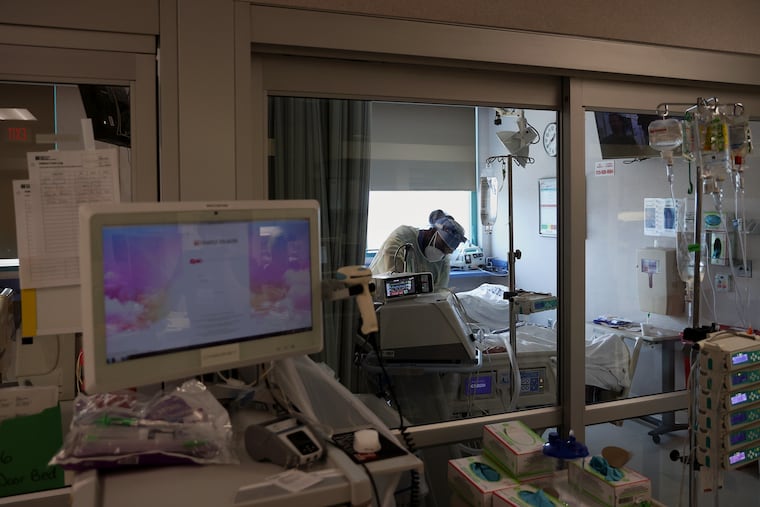COVID-19 is more likely to hospitalize and even kill people with these preexisting conditions
Diabetes, chronic heart disease, and chronic lung disease are among the most common underlying conditions among people hospitalized with the coronavirus.

With the number of COVID-19 cases nationally now numbering in the millions, and a vaccine still at least months away, doctors, hospitals, and analysts are trying to limit the virus’s devastation by learning which patients may suffer the most severe cases.
New data from the U.S. Centers for Disease Control and Prevention, for instance, found that hospitalizations were six times higher among patients with underlying medical conditions. These patients were 12 times more likely to die of the virus than patients who had been healthy. Hypertension, cardiovascular disease, diabetes, obesity, and chronic lung disease were the most commonly reported underlying medical conditions, according to the CDC.
In the Philadelphia area, emergency medicine doctors say the CDC’s findings largely reflect their experience treating COVID-19 patients, but predictions are by no means sure.
“COVID-19 is a very wild disease,” said Erica Harris, an emergency physician at Einstein Medical Center. “It’s very hard to predict which way it’s going to go. ... There are people who can have every single risk factor and still do fine.”
The virus has hit the elderly, who are considered more vulnerable because they often have multiple chronic conditions, particularly hard. But Clarke Piatt, medical director of Bryn Mawr Hospital’s intensive-care unit, said he has seen some of the worst outcomes among patients in their 50s and 60s with type 2 diabetes and obesity.
Nearly half of patients hospitalized with COVID-19 had obesity, and about 28% had type 2 diabetes, according to the CDC.
Doctors do not entirely understand why diabetes is a risk factor for severe cases of the virus, Piatt said. However, diabetes and obesity are, generally speaking, associated with inflammation and diminished lung capacity, which often makes people with these conditions vulnerable to other chronic conditions and illnesses.
Main Line hospitals, including Bryn Mawr, have also seen a high number of coronavirus intensive-care admissions among patients with chronic lung disease — a more obvious risk factor for COVID-19 because it is a respiratory illness, Piatt said. The CDC found that about 35% of people hospitalized for COVID-19 reported having chronic lung disease, with higher rates among older patients.
Understanding these trends has not shaped doctors’ approach to treating patients, but it has given them a better sense of what the prognosis may be, and how to prepare family members.
“It’s grim, but we know some patients won’t make it through,” Piatt said. “I can give a better predicted value for families who are stuck waiting. We need to be as honest as we can with them over the phone.”
At Temple Health, which has one of the busiest COVID-19 units in the region, about a third of patients have some type of cardiovascular disease, said Gerard Criner, director of the Temple Lung Center.
Nationally, just more than a quarter of patients hospitalized with COVID-19 reported cardiovascular disease and half reported hypertension, according to the CDC.
Temple has also seen a high number of COVID-19 patients with kidney disease. This is not among the most common underlying conditions identified by the CDC, but Temple has a large kidney disease program. For that reason, many Temple patients rely on dialysis, potentially putting them at greater risk for contracting the virus, Criner said.
“I think that the number of comorbidities and severity of cases will be different between institutions because of the patients they treat,” he said. “We’re in an inner city — you’ll see patients with more severe organ dysfunction.”
Harris, of Einstein, agreed. Einstein serves North Philadelphia neighborhoods with above-average rates of cardiovascular disease, diabetes, obesity, and other medical conditions that have been linked to adverse childhood experiences — such as systemic racism — and are now putting Black and Latino people at greater risk of severe COVID-19 complications.
“Our patients were set up for having more severe disease,” she said.